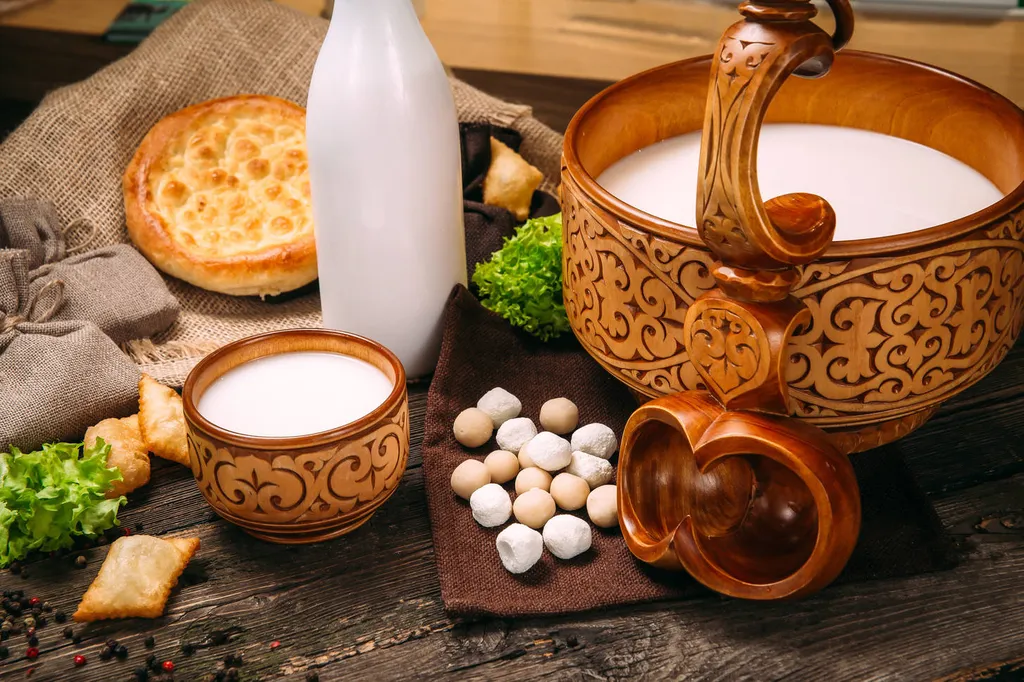In the vast landscape of dairy innovation, a groundbreaking study has emerged, poised to revolutionize the quality of mare milk yogurt. Researchers from the College of Food Science and Pharmacy at Xinjiang Agricultural University, led by LI Haiyan, have unveiled the potential of transglutaminase (TGase), an enzyme that could significantly enhance the texture, water holding capacity, and gel structure of mare milk yogurt. This discovery, published in the journal ‘Zhongguo niangzao’, opens new avenues for the agritech sector, particularly in the realm of specialty dairy products.
Transglutaminase, often referred to as the “molecular glue” of proteins, catalyzes the formation of isopeptide bonds, effectively modifying proteins to improve the overall quality of dairy products. The study optimized the treatment conditions for TGase in mare milk yogurt using single factor tests and response surface methods. The optimal conditions were found to be a treatment temperature of 45°C, a TGase addition of 2 U/g, and a treatment time of 2 hours. Under these conditions, the comprehensive score of mare milk yogurt reached an impressive 1.609.
The implications of this research are profound for the agriculture sector. Mare milk, known for its unique nutritional profile, has been underutilized due to its challenging coagulation properties. The introduction of TGase not only improves the texture and stability of mare milk yogurt but also enhances its storage characteristics. “During storage, the post-acidification of mare milk yogurt was improved in the TGase treatment group, and the viable bacteria count was not affected,” noted the researchers. This stability is crucial for commercial distribution and consumer satisfaction.
The study also highlighted the sensory benefits of TGase-treated mare milk yogurt. On the 7th day of storage, the sensory score reached an optimal 81.16, maintaining high viscosity, low whey precipitation rate, stable texture, and viable bacteria count. These findings suggest that TGase could be a game-changer for dairy producers looking to expand their product offerings and tap into the growing market for specialty dairy products.
The commercial impact of this research is substantial. By improving the quality and stability of mare milk yogurt, TGase treatment can enhance the marketability of this niche product. This innovation could encourage more farmers and dairy producers to invest in mare milk production, thereby diversifying their revenue streams and contributing to the agricultural economy.
As the agritech sector continues to evolve, the integration of enzymes like TGase into dairy processing could pave the way for more sustainable and efficient production methods. The research conducted by LI Haiyan and her team not only sheds light on the potential of TGase but also sets the stage for future developments in the field of dairy innovation. The study, published in ‘Zhongguo niangzao’ by lead author LI Haiyan and colleagues from the College of Food Science and Pharmacy at Xinjiang Agricultural University and Xinjiang Tianrun Biotechnology Co., Ltd., marks a significant step forward in the quest for higher quality dairy products.

